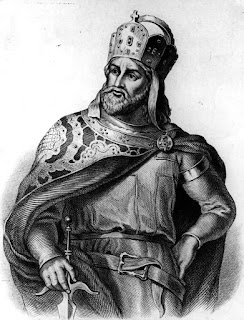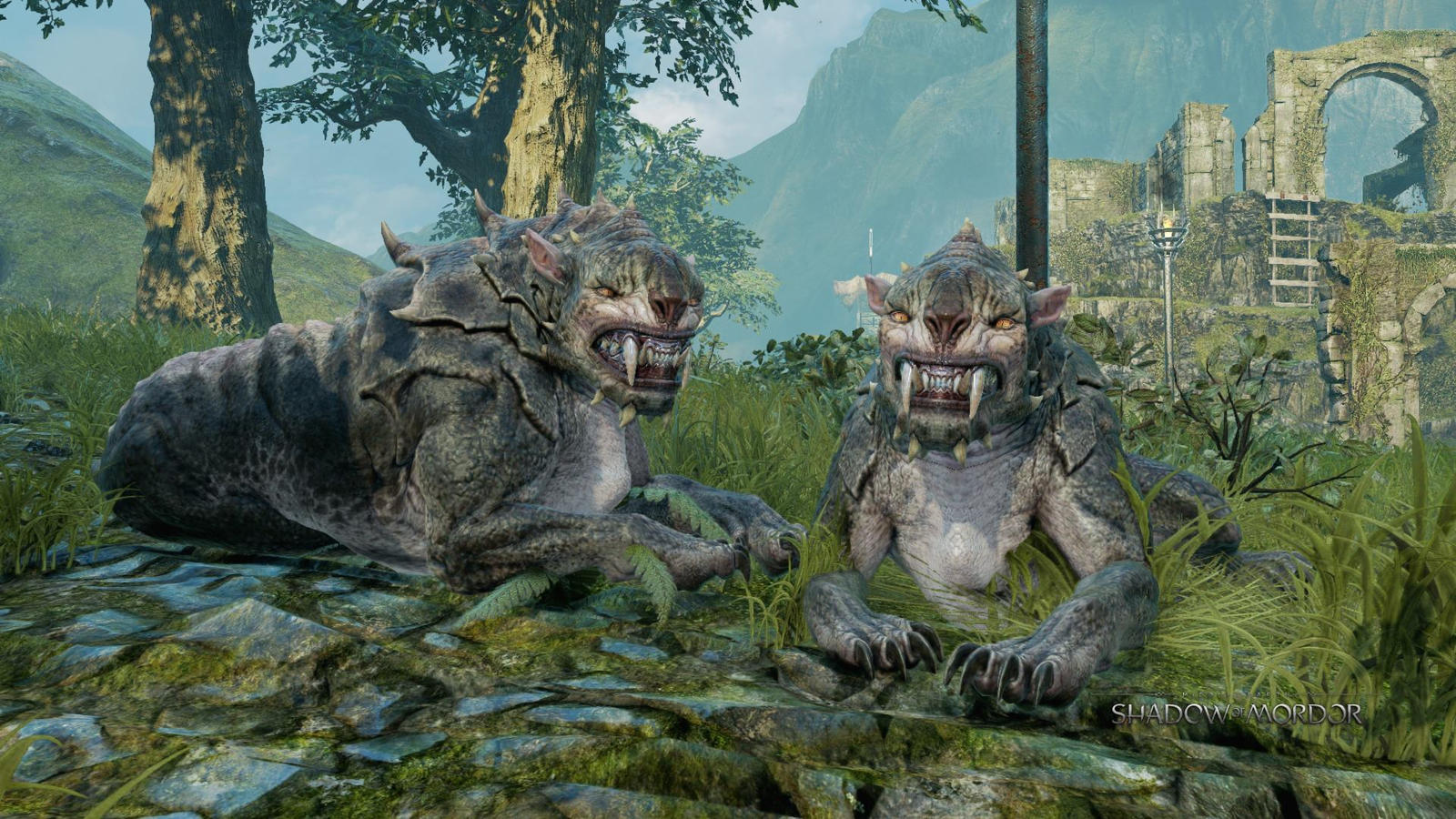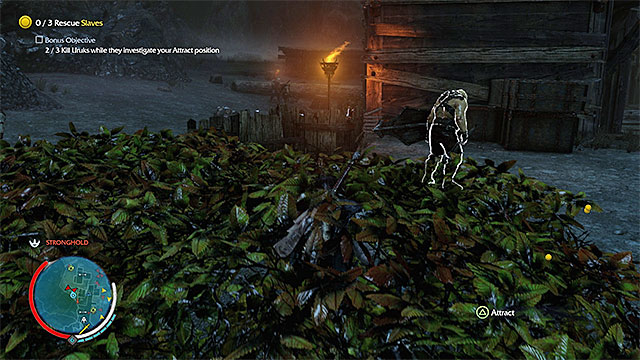My Most Heroic and Wise Emperor,
It is with the utmost joy I write from Boston to tell you that the savage King Paul has agreed to your offer and has allowed me to stay here and study the history of these primitives. It appears that their...heathenous faith was founded soon after God's wrath. Their faith shattered, the people of Atlantica began worshipping devils and demons, seeking solace in the knowledge that their gods were uncaring, and thus could allow the End to happen.
Saturday, December 24, 2016
Tuesday, October 25, 2016
SPQR Round Two (Actually Round 9): Chapter 1: Ignis in Morte
Note from lucky7: Our framing device for my achievement run is a book written by a scholar in the Roman Empire of 2017 CE about the Isaurian dynasty's rise to prominence. Author's Notes will be in italics and are asides written by Dr. Mazatl Argyros. My own asides will be in bold italics. The timeline stops being actual history in 769, which I felt I should mention because our first Emperor (Konstantinos V) has been ruling for a few decades by this point.
 |
| The Fall of Rome in 476 CE. |
Saturday, October 8, 2016
Elpidios the Just: A Crusader Kings 2 One-Off
Howdy, folks. This here is a one-shot based off a failed run of mine. SPQR: Round 2 will begin next Saturday if I'm lucky.
When talking about the end of the Isaurian dynasty's rule of the Byzantine Empire and the era of the Petty Emperors, there is one figure who is often overlooked: Strategos Elpidios "the Just."
Little is known about the enigmatic governor, and for good reason; much of his history was erased during Emperor Iordanes' purge of Iconoclasm from the Empire. What is known is that he was born a commoner who worked his way up through the Byzantine bureaucracy. Throwing his lot in with Konstantinos V during the civil war against Strategos Artabasdos of Armenia, he found his loyalty rewarded with the Theme of Sicily in 769 CE.
When talking about the end of the Isaurian dynasty's rule of the Byzantine Empire and the era of the Petty Emperors, there is one figure who is often overlooked: Strategos Elpidios "the Just."
 |
| A picture of a man assumed to be Elpidios. |
Thursday, October 6, 2016
lucky7 Plays Skyrim, Chapter 1: Character Creation
The Elder Scrolls V: Skyrim was released by Bethesda Softworks on November 11th, 2011. Featuring dragons, a plot featuring the prophesied end of the world, and a protagonist capable of shouting people off of cliffs, it won near-universal acclaim. Even after the release of Fallout 4, it's cultural influence can be felt even today.
I hate it.
Okay, it's a bit more complicated than that. When the game came out, I had basically wanted to play Skyrim since forever. Since I was quite young when it came out, I didn't get to (which was probably for the best). Five years later, I finally did; and for the PC no less! With excitement and trepidation and three weeks of waiting, I booted up Skyrim for the first time.
One hundred and fifteen hours. One hundred and fifteen hours of a game I have modded to Oblivion and back, until it can't even be considered Skyrim any more. But I can't tear myself away from it. So that's what this series is: my one last hurrah before leaving Skyrim for the foreseeable future. For future reference, comments from me the writer will be in italics. Our hero's perspective will use the default font.
But enough about me. Let's get on with the main attraction:
Friday, September 16, 2016
Senatum Populusque Romanus: lucky7 Restores Rome, Chapter 3: Hostia
In talking about Saint Leon's conquest of the Holy City, it is easy to get swept up in the glory of the first true sign of Rome's resurgence. I myself have written this chapter multiple times in an attempt to provide a fair and balanced account of what happened. The easiest way is to explain the history of the Levant and nearby Egypt a scant few decades before.
From 751 until "Leon's Crusade," much of Arabia and Northern Africa had been under the control of the Abbassid Caliphate. After Caliph Al-Mansur's death in 775, his heirs proved unable to hold onto the vast lands of the Arabian Empire, until finally Caliph Behir stood against the Roman onslaught.
While there are accounts of Leon's military prowess, he surprisingly might not have won against the Caliphate had it not been for heretics. More specifically, the Toumid Sultanate.
From 751 until "Leon's Crusade," much of Arabia and Northern Africa had been under the control of the Abbassid Caliphate. After Caliph Al-Mansur's death in 775, his heirs proved unable to hold onto the vast lands of the Arabian Empire, until finally Caliph Behir stood against the Roman onslaught.
While there are accounts of Leon's military prowess, he surprisingly might not have won against the Caliphate had it not been for heretics. More specifically, the Toumid Sultanate.
Saturday, September 10, 2016
Senatum Populusque Romanus: lucky7 Restores Rome, Chapter 2: Bellis Termino
 |
| Leon famously raged for days upon hearing this news. |
 |
| Adrian II is famously remembered as the last Pope to reside in Rome. |
With the immediate threat of the Pope removed and a relatively stable realm, Leon soon shifted his focus to matters of the faith. preparing immediately for a pilgrimage to Jerusalem.
 |
| A most holy man. |
Before he departed, Leon ensured his personal troops and the Varangian Guard would remain busy by ordering the reconquest of Sicily., starting with the Duke of Benevento. Reduced by Basil's conquests to ruling solely the County of Foggia, Duke Aimone never stood a chance against the Byzantine's onslaught.
 |
| The Battle of Melisende |
It was noon, and the streets were bustling with pilgrims. The streets smelled as they always did, and I was on my way to the butcher when I saw a fellow Greek staring agape as he wandered through the city. For reasons I still do not fully understand, I greeted him, delighting in the use of my native tongue. He gestured to the sick in the alley ways and asked "Why are these people left hungry in the City of the Lord?"
"Because," I responded, "The Jizya tax has forced more than one family to either convert to Islam or face financial ruin." [Author's Note: There are no records, Arabian or otherwise, indicating this ever happened. Keep in mind that however easy it might be to extol Rome's virtues today and demonize the Abbasids, the world in 892 was a much harsher place, and the Empire's future much less certain.]
"This is not right," the Greek said, and with that he set about distributing alms to the poor out of his pack. I watched him for half an hour before joining in, and soon we were on our way through the Holy City giving food. Not once did I see him refill his pack, and yet not once did I see it run out.
"What is your name?" I asked of this most charitable man.
He replied simply "Leon."
Whether this story is true or not, what is known is that Leon came out of Jerusalem a changed man, bent on returning the Holy Land to Christian rule. But before he could embark on this expedition, Leon needed to solidify his prestige and economic power among the Doux. Thus he turned his eyes to Venice, declaring war on the city-state in 892. It was also during this time Leon divorced his first wife, Hypatia, citing a need for a male heir and consanguinity.
 |
| Leon routinely spent time meditating on matters of the faith. |
 |
| A promise kept. |
 |
| A portrait of Doge Georgios commissioned six months before his death. |
 |
| Cataphractoi at the Battle of Ascalon. |
Sunday, September 4, 2016
Senatum Populusque Romanus: lucky7 Restores Rome, Chapter 1: Primogenita
Rome, 26th December 891
The warm Mediterranean air blew through Prince Konstantinos' hair as he stared out upon the city. "Basileus Konstantinos," he chided himself. "After all, the Empire will belong to me soon enough."
One of the eunuchs barged into his chamber-it was Theophilos. "My Emperor," he bowed before Konstantinos. "I bear grave news." The prince sighed. "My father has yet to wake up from the injury dealt to him in yesterday's skirmish?" Theophilos nodded, fearing some form of punishment, but his master simply sighed and turned again to face the balcony. Gesturing for the servant to join him, Konstantinos looked out once more onto the city.
"It looks, beautiful, doesn't it?" Konstantinos asked then, before the servant could answer "Of course it does. The Eternal City has weathered barbarian rule very well. Not since Justinian has an Emperor ruled this soil, but my father did. First him, and soon me." The prince now looked as though he were choking back tears. "And if it weren't for that damn heretic trying to take back what was not his, he might have been able to truly appreciate the glory of what we shall accomplish."
"Now now," Theophilos said, "It has only been a day. His Imperial Highness Basileios might yet wake."
"Father taught me never to trust in miracles. He won his power at the point of a sword so I wouldn't have to-" Konstantinos squinted off at the distance. "Are those...our troops? The Cataphractoi and the Varangians are out fighting the Papal forces, correct?"
"It must be Captain Hysing." The prince chuckled to himself. "Come to check on my father and bring news of our victory over that thrice-damned Italian, of course. Theophilos, fetch that wine Hysing hates and tell him to meet me in my study."
Konstantinos choked. "What is he doing here???" He shouted to the sky. "Has he not taken enough from me!?!?"
"My Lord, what shall I do?" Theophilos asked, flinching.
"...send him to me. Alone."
_________________________________________________________________________________
Konstantinos' study has been designed over five hundred years before to ensure that it remained cool throughout the day. Yet when Leon entered the room the heat became suffocating.
"You know why I am here." Leon said flatly.
"You are here to steal my birthright from me." Konstantinos returned.
"Am I now?" the younger brother let loose with a malicious grin. "Because according to my Chancellor, what happened was this; our father-"
"HE IS NOT YOUR FATHER!" The elder bellowed, standing out of his chair. "YOU, dear brother, are the bastard offspring of DECEASED Basileus Michael and that Norse whore!"
Leon took a moment to collect himself, tightening his hands into fists. "Brother, it has been a very long journey from Salerno to Rome. Let me say what I am here to say, and make you an offer."
Konstantinos said nothing.
Leon continued. "The morality of my mother has nothing to do with what you have done. When you got news of Father's injury, you immediately stepped in to take charge of his flank in the battle, and for that I commend you. But then you declared yourself regent in my stead, and claimed the title of Despot, thus putting you first in line for the throne. That, brother, is high treason, and when I ascend you will be lucky to have kept your head on your shoulders."
"You know what Gisele did to him, don't you? After his injury fighting in Armenia? She pissed on her wedding vows, and fathered at least one child with the Count of Lesbos! He kept quiet about it to protect my legitimacy, if Apollonia was a bastard I could be too. Yet he took care of us. He even granted you lands in Sicily, Leon, and you know how he hated you. I ask of you, what more could you possibly want?"
"The throne." Leon said flatly. "Bastard or not, I am both born in the purple and the better man for it. If you do not cede the title of Despot to me, I will have to attain the Purple by force. Think about your children, Konstantinos. Would you rather they remember you as a minor landholder and loyal servant to the Empire, or as a name to be reviled throughout Rome to the end of time?"
Konstantinos was silent for a long while, and then he wept. "...I am the only true son of Basileios. This...this isn't fair."
"Few things are." was Leon's only reply.
_________________________________________________________________________________
Konstantinos officially handed the title of Despot to Leon on the 27th of December. The war against the Papacy was won before the end of the year, and Basileios I of House Makedon died comatose in bed on the 21st of January, 892. Described as a bear of a man, Basileios' primary achievements in his lifetime were the reconquest of Sicily, Armenia, and Alexandria. His personal life was filled with tragedy, disfigured fighting in Armenia at the age of 37, and some records indicate that all three of his wives committed adultery during their marriages. This may explain some of his famous temper, best demonstrated by his atrocities during the sacking of Alexandria. Regardless, his legacy (both as a peasant that attained the Imperial Throne and the achievements of his descendants) ensure that his is a tale remembered a thousand years later.
Although known then as Leon the Just, the Emperor now known as Saint Leon was coronated the next day. The early parts of his reign shall be covered in Chapter II.
The warm Mediterranean air blew through Prince Konstantinos' hair as he stared out upon the city. "Basileus Konstantinos," he chided himself. "After all, the Empire will belong to me soon enough."
 |
| Konstantinos and his wife in 891. Artist unknown. |
 |
| The Byzantine Empire and surrounding territory, ca AD 891. Courtesy of the Ecumenical archive |
"It looks, beautiful, doesn't it?" Konstantinos asked then, before the servant could answer "Of course it does. The Eternal City has weathered barbarian rule very well. Not since Justinian has an Emperor ruled this soil, but my father did. First him, and soon me." The prince now looked as though he were choking back tears. "And if it weren't for that damn heretic trying to take back what was not his, he might have been able to truly appreciate the glory of what we shall accomplish."
"Now now," Theophilos said, "It has only been a day. His Imperial Highness Basileios might yet wake."
 |
| Basil I in his last few weeks. Note the mask covering his infamous disfigurement. |
 |
| "That they are, sir." |
The eunuch laughed nervously. "My Lord, it's not Captain Hysing."
"Then who is it?" The prince demanded.
"Leon."
 |
| A portrait of Saint Leon, commissioned before Basil I's death. |
"My Lord, what shall I do?" Theophilos asked, flinching.
"...send him to me. Alone."
_________________________________________________________________________________
Konstantinos' study has been designed over five hundred years before to ensure that it remained cool throughout the day. Yet when Leon entered the room the heat became suffocating.
"You know why I am here." Leon said flatly.
"You are here to steal my birthright from me." Konstantinos returned.
"Am I now?" the younger brother let loose with a malicious grin. "Because according to my Chancellor, what happened was this; our father-"
"HE IS NOT YOUR FATHER!" The elder bellowed, standing out of his chair. "YOU, dear brother, are the bastard offspring of DECEASED Basileus Michael and that Norse whore!"
Leon took a moment to collect himself, tightening his hands into fists. "Brother, it has been a very long journey from Salerno to Rome. Let me say what I am here to say, and make you an offer."
Konstantinos said nothing.
Leon continued. "The morality of my mother has nothing to do with what you have done. When you got news of Father's injury, you immediately stepped in to take charge of his flank in the battle, and for that I commend you. But then you declared yourself regent in my stead, and claimed the title of Despot, thus putting you first in line for the throne. That, brother, is high treason, and when I ascend you will be lucky to have kept your head on your shoulders."
"You know what Gisele did to him, don't you? After his injury fighting in Armenia? She pissed on her wedding vows, and fathered at least one child with the Count of Lesbos! He kept quiet about it to protect my legitimacy, if Apollonia was a bastard I could be too. Yet he took care of us. He even granted you lands in Sicily, Leon, and you know how he hated you. I ask of you, what more could you possibly want?"
"The throne." Leon said flatly. "Bastard or not, I am both born in the purple and the better man for it. If you do not cede the title of Despot to me, I will have to attain the Purple by force. Think about your children, Konstantinos. Would you rather they remember you as a minor landholder and loyal servant to the Empire, or as a name to be reviled throughout Rome to the end of time?"
Konstantinos was silent for a long while, and then he wept. "...I am the only true son of Basileios. This...this isn't fair."
"Few things are." was Leon's only reply.
_________________________________________________________________________________
Konstantinos officially handed the title of Despot to Leon on the 27th of December. The war against the Papacy was won before the end of the year, and Basileios I of House Makedon died comatose in bed on the 21st of January, 892. Described as a bear of a man, Basileios' primary achievements in his lifetime were the reconquest of Sicily, Armenia, and Alexandria. His personal life was filled with tragedy, disfigured fighting in Armenia at the age of 37, and some records indicate that all three of his wives committed adultery during their marriages. This may explain some of his famous temper, best demonstrated by his atrocities during the sacking of Alexandria. Regardless, his legacy (both as a peasant that attained the Imperial Throne and the achievements of his descendants) ensure that his is a tale remembered a thousand years later.
Although known then as Leon the Just, the Emperor now known as Saint Leon was coronated the next day. The early parts of his reign shall be covered in Chapter II.
 | |
|
Wednesday, April 13, 2016
Shadow of Mordor: The Importance of Small Changes
I'm jumping on the hype bus a few years too late, but lately I've been playing (and falling in love with) Monolith's game, despite the fact that I'm playing the game in a way it was never meant to be played: the PS3 version.
In every Batman: Arkham game, each encounter is self-contained. In any given room, there are X amount of people to beat up, and it's your job to make them regret their life decisions up, be it through melee or stealth.
One of the easiest ways to describe Shadow of Mordor is the following: "Assassin's Creed meets Batman: Arkham" I was surprised to find out how startlingly apt the comparison was. This game felt down to the button press like what I had played before, and most of the new things put in by Monolith were...not the best.
I just love nature. Except when it's clunky as all hell to do anything on.
Inthis excellent column on the subject,, Shamus Young points out that Shadow of Mordor's combat lacks the sort of high-level play found in a Batman: Arkham game, by making the game much less focused on player skill and granting them upgrades allowing them to circumvent that skill barrier, resulting in less satisfying high-level play. But in looking at the game, I've come to the conclusion that that's inherent to the design. Rather than focusing on speed and finesse like the Batman: Arkham games, Shadow of Mordor's combat focuses on strength and brutality.
Clear-Cut Victory
In every Batman: Arkham game, each encounter is self-contained. In any given room, there are X amount of people to beat up, and it's your job to make them regret their life decisions up, be it through melee or stealth.
Holy street fight, Batman!
Your brawl or sneakfest end with a slow-motion takedown of the final mook, giving the fight a clear bookend. Shadow of Mordor, on the other hand, puts the player in a long running battle, taking Orcs out a few at a time, and never getting a satisfying beginning or end. This one decision shines a new light on everything you do: Shadow of Mordor is built to engage the fantasy of being a one-man army.
Think this, but with less rifles and even fewer cool hats.
To prove my point, here are two videos:
Several key differences in how the characters "feel" to control changes the combat focus from finesse to brutality:
- Batman's attacks and counters are snappy, and only get faster as your combo gets higher. Tallion (Shadow of Mordor's protagonist) is much slower, indifferent to the combo meter.
- Alongside the top point, Batman can "jump" across a fight to knock down a thug who wasn't expecting it. In my time with the game, Tallion has done this exactly one, with a pirouette-esque move, and it felt unnatural.
- When Batman performs a takedown move, it's slow, and the camera stays zoomed out, giving you a breather to figure out who to attack next. Tallion's executions zoom in and speed up, selling you on the power of the blow you just delivered.
These little differences add up to fights that, despite having near-identical button presses by design, feel very different from each other. But, as fans of both games know, fighting is only half the equation of these games.
Stealth
Like a villain...stabbed for the very first time...
Shadow of Mordor's stealth system is perhaps the clearest example of the switch from skill to brutality. Part of this is to compensate for the large open world the player can traverse, but there is still a vast difference between the two games, to the point where it's somewhat unrecognizable.
The major differences I found were the following:
- In Shadow of Mordor, there is no such thing as a "stealth room." So long as you remain undetected, you can attack from the shadows as much or as little as you wish. The Batman: Arkham games have specific "Predator sections," which suffer from a lack of pacing and focus.
- Shadow of Mordor does not equate sight with failure; if a guard starts to spot you, you can get out of his field of view to maintain your stealth advantage. This is not the case in a Batman: Arkham game, where if you are spotted, you're spotted, and there's no way of going back.
- Finally, Mordor allows you to play with enemy perception, whether it be through making noise or dropping flies on their heads. The Batman: Arkham equivalent is the Sonic Batarang, which can be used once before taking a long time to use again. It's important to note that Arkham Knight does have an answer to the Attract ability in it's "Voice Synthesizer," but even that will stop being usable long before you get bored of using Attract.
Do you bleed? You will.
In Summary:
The small changes Monolith took when using the Batman: Arkham formula for Shadow of Mordor ended up changing the focus of gameplay. A few animation changes, a few new abilities, and a shift in map design all added up to a game focused not on being a superhero and saving the day, but on taking down an army, one Orc at a time.
What other small changes have you noticed that altered how a game worked? Put them down in the comments below
Subscribe to:
Posts (Atom)









